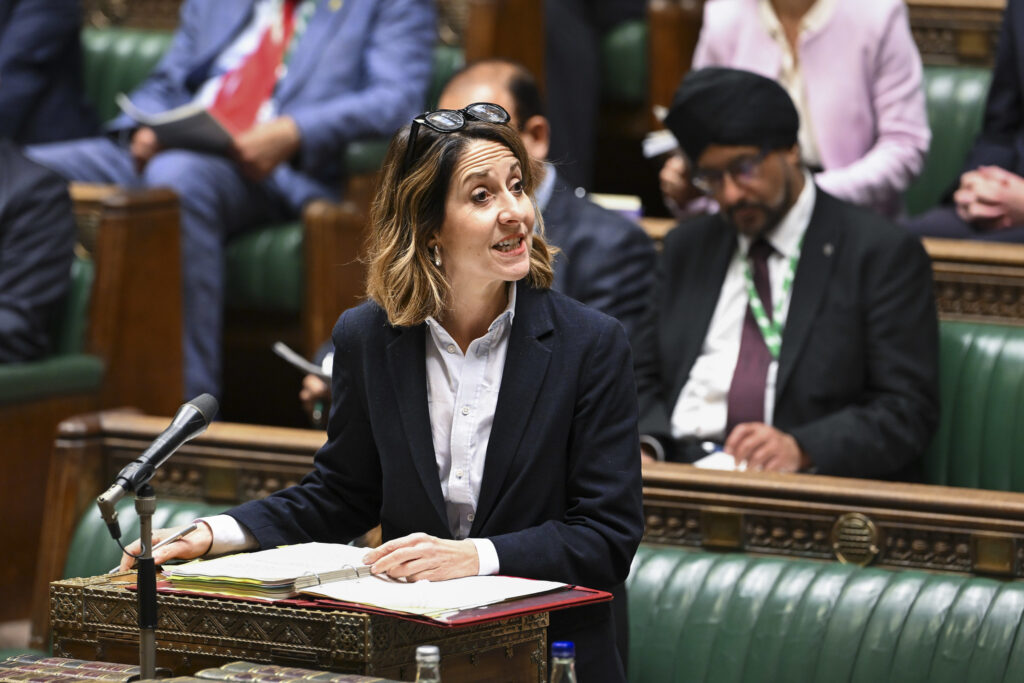Labour MP Chris Hinchcliff explains why he doesn’t support for the disability benefit cuts
Chris Hinchcliff is the Labour MP for North East Hertfordshire
Nearly 50 years ago, Labour Minister Douglas Houghton—the man responsible for social security after thirteen wasted years of Tory government and the last Cabinet member to have served in the carnage of the First World War—said shortly after taking office:
“The economic inheritance from the Conservative Government is a grievous one, far worse than is thought, but the Government will not make the social services the first casualty of economic difficulty. The next few days will make this quite plain. We know—none better—that the sort of society we wish to see can be built only upon firm economic foundations, but the spirit of social service, of the good neighbour, of the family friend, lies in the hearts of the people and will not be impaired by economic difficulties.”
Those words are a painful reminder of how far we have drifted from our heritage as the current Labour Government brings forward its Disability Benefit Cuts Bill—legislation that, in its current form, is impossible to support.
We have inherited a country in deep crisis. Poverty marks every corner of our nation. In 2022, 3.8 million people experienced destitution, including one million children.
The crisis is especially acute among disabled people, the Trussell Trust reports that three in four people referred to their foodbanks are disabled or live in a household with a disabled person.
This is no accident. Rising poverty in our communities did not happen in a vacuum —it is the direct consequence of an economic model that prioritises tax cuts for the wealthy over support for those in need.
This is the lens through which the Disability Benefit Cuts Bill will be understood by our constituents—a continuation of a way of governing that has failed them time and again.
What the commentariat and the political class consider sensible decision-making always ends with ordinary people paying the price for crises not of their making.
Benefit cuts receive sage nods of approval from too many journalists who blithely assert the necessity of driving more of our neighbours into poverty. Yet at the same time, it is rarely asked whether, given the urgent need to invest in public services whilst undoing the Tory’s damage to our nation’s finances, Britain really ought to be continuing to maintain the lowest corporation tax rate in the G7.
Similarly, whilst a projected rise in spending on vital, often literally lifesaving, disability and incapacity benefits for working-age claimants to £60.7 billion in 2029/30 is declared utterly unsustainable, the 107 tax-breaks currently costing HMRC £207 billion a year receive no scrutiny whatsoever.
Addressing these issues wouldn’t just represent fairer ways to fund services—balancing the books without pushing thousands into poverty—they also would raise substantially more money.
Meanwhile, we are faced with a “concession” that only new claimants will be impacted by the tightened four-point criteria for PIP that will see people who need help going to the toilet, cutting up food or washing themselves denied support.
This creates a two-tier welfare system where the support you receive is based on when you applied, rather than need, which is totally unfair.
How can it be right that next year workers who suffer accidents on the job and become disabled as a result will not be entitled to support they would have received under a Conservative Government last year?
Disabled people excluded under this new system won’t be any less disabled because the criteria changed—they’ll just be poorer and less able to access the support they need.
The failure of austerity tested to destruction and beyond the idea that reducing the help offered to those in need would lower government spending in the long run. Time and time again the costs have rebounded on other parts of our social security system, with spiralling demand on crisis support.
Similarly, the visible decline of our high streets is daily proof that people with disabilities are not ‘economically inactive’, they are the very people most likely to spend in local shops, and when they struggle businesses suffer, tax revenues drop, and the whole economy loses out.
Repeating this absurd experiment will further fuel the resentment and frustration with politics that is driving voters away from Labour. We have to deliver the profound change which we promised, and that the public expected from a government driven by Labour values.
The dire economic inheritance from the Conservatives should serve as motivation to build an economic model that puts people before profit—not a justification for the status quo.
The Labour Government must prove it understands that there is more to governing than the desiccated calculations of the bean-counters in the Office for Budget Responsibility and embrace a politics rooted in the belief that human live matters more than the wealth of mega-corporations and the ultra-rich.
Image credit: House of Commons – Creative Commons
Left Foot Forward doesn’t have the backing of big business or billionaires. We rely on the kind and generous support of ordinary people like you.
You can support hard-hitting journalism that holds the right to account, provides a forum for debate among progressives, and covers the stories the rest of the media ignore. Donate today.




